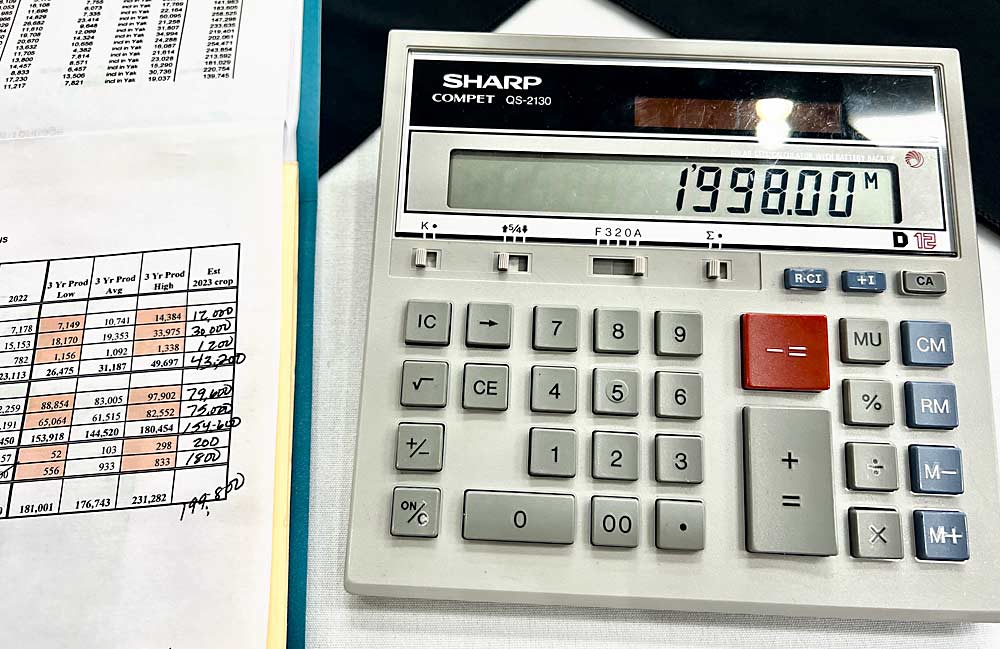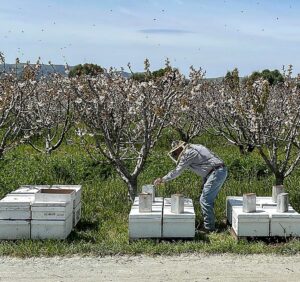
Cherry growers in the Northwest expect to harvest roughly 20 million boxes, or 200,000 tons, of cherries this year, a significant jump over last year’s small crop.
Growers from five Northwest states came up with their estimate on May 17 at the annual five-state cherry meeting in Richland, Washington.
If the estimate holds, it would mean a 53 percent jump over the 2022 crop, which was stymied by a late and cold spring that hampered pollination. However, it would top the three-year average of 17.7 million boxes, measured in 20-pound box equivalents.
The crop also is about two weeks late this year, so late that the five-state meeting figure will serve as the first estimate — or Round 1 — of the year.
“This is going to be the estimate that hits the streets,” said B.J. Thurlby, president of Northwest Cherry Growers, the Yakima, Washington, nonprofit that collectively markets sweet cherries from Washington, Oregon, Idaho, Montana and Utah under a federal marketing order.
Normally, industry officials rely on weather data, historical information and a host of warehouse representatives to make periodic crop estimates that begin before the five-state meeting.
Also at the meeting, industry leaders discussed that retailers are anxious to have a normal-sized crop after they struggled to keep store shelves full last year.
“There’s extreme excitement for cherries,” said West Mathison, president of Stemilt Growers of Wenatchee.
Stemilt has cherry orchards in California and Washington. California’s cherries also are late, which could mean an overlap in the market, officials said.
Meanwhile, international markets are returning to “normalcy” after the pandemic, especially those in East Asia, said Keith Hu, international marketing director for Northwest Cherry Growers. However, consumers in China are “cautious” about spending their money after so many years of strict COVID-19 restrictions.







Leave A Comment